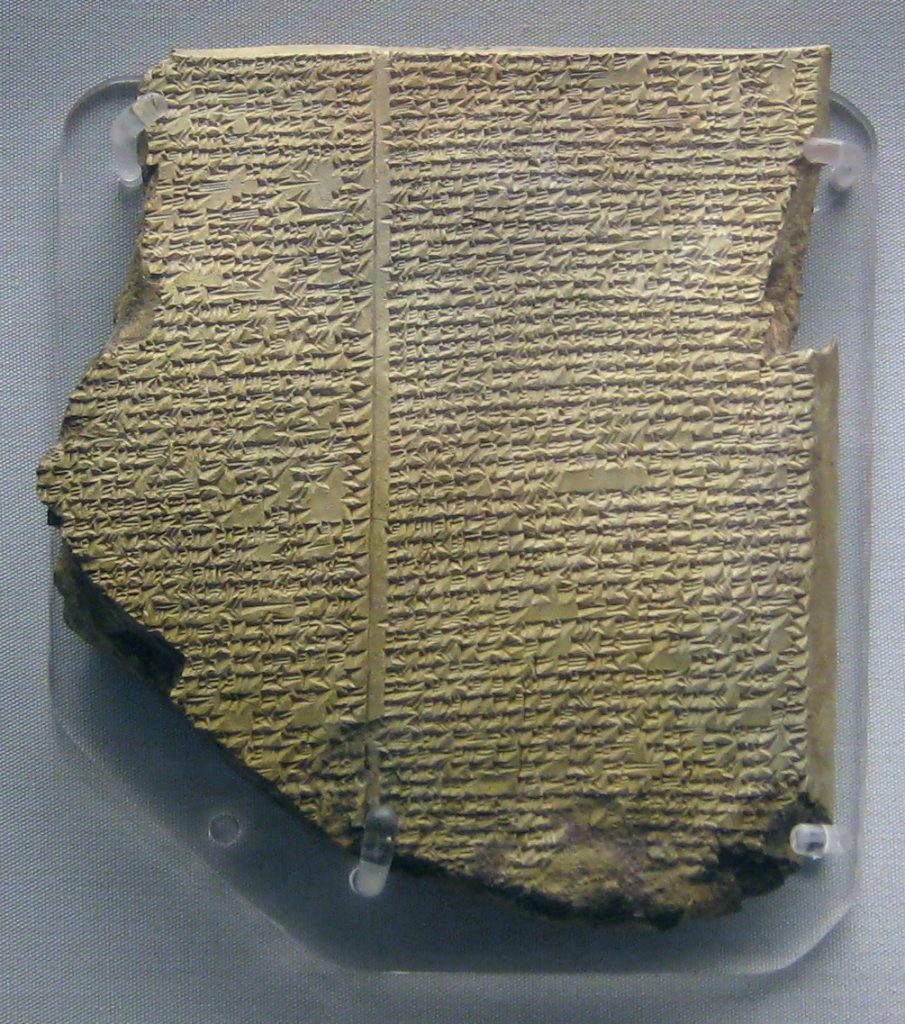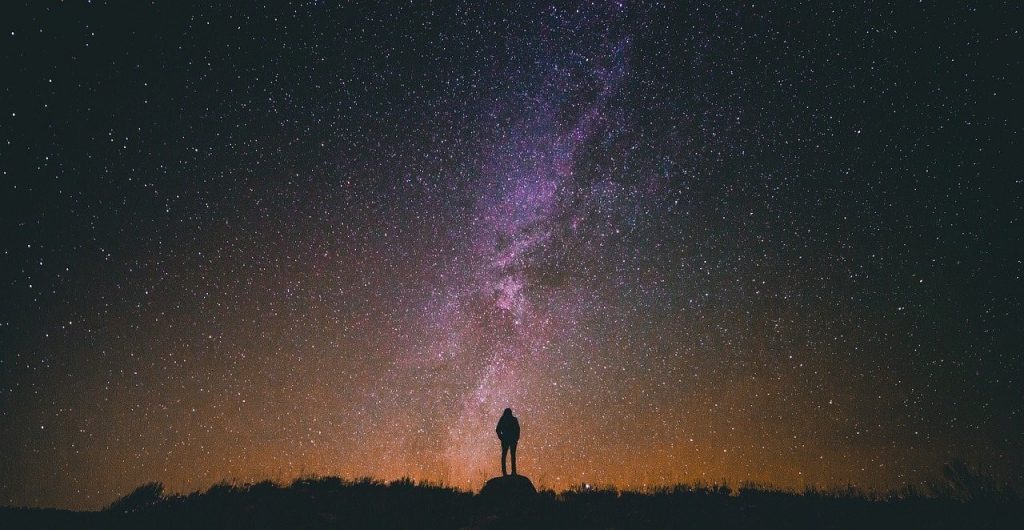
This article is an abridged version of a presentation I gave at a workshop in 2019 on my reading of The Epic of Gilgamesh.
Life, Death and Immortality are huge concepts to grapple with, and not always easy to understand. Like Gilgamesh, humans have strived to keep death at bay, perhaps hoping our glories and creative efforts will ensure an immortality of sorts. Maybe not physical immortality, but something greater, an enduring essence of spirit, of our names being uttered by those left behind. There’s an ancient Egyptian New Kingdom tomb inscription that beautifully encapsulates the essence of what immortality may really mean:
“To speak the name of the dead is to make them live again. It restoreth the Breath of Life to him who has vanished”
After several thousand years we’re still reading the exploits of Gilgamesh and Enkidu, so wouldn’t you say they’ve entered into the glorious landscape of Eternity? Now what of the heroes of this drama?
Cries from the Silence
Enkidu, was called “offspring of silence”, a romantic and poignant title for anyone to bear. He was moulded out of clay and given life, an example of physical vigour and its appetites. He was the fearsome wilderness present outside the city gates, a primeval manifestation of humanity’s psyche, and its original innocence perhaps. A perfect companion to Gilgamesh the warrior king. They appeared invincible, immune from the ravages of time and hand of death. Might they be considered immortal even? Physically, no. It was achieved in other ways.
Their story made me think “aren’t we all offspring of silence?,” creatures born from the Great Silence that is the Unmanifest Universe. Born from silence and entering into a world of noise, yet, the silence is ever-present and promises we’ll return to its embrace eventually. Even the Universe must return to a state of non-being, to embrace the fire of destruction when the end comes. Then, only darkness and utter silence exist as the Cosmic Consciousness lies slumbering, gestating new worlds. Does this sound like total annihilation? No. The Universe is magnificently alive and filled with mystery.
The story of Gilgamesh and Enkidu is also humanity’s search for eternal life throughout the ages, as well as the fear of loss, and of physical deterioration. Philosophy and metaphysics have explored questions of existence and death at great length, but to what end?
From Blood and Clay arisen
For those who are seekers of the Greater Mysteries, we know death isn’t the end, but only a doorway to greater states of consciousness. Regardless, grief and a sense of loss is still ours to experience despite the inner knowing. The human part of our nature knows this to be true, and the divine part? It urges us to look beyond the trappings of illusion and perceive reality as it truly is. Immortality has been the focus of humanity’s hopes and dreams since early times, infusing our creative and intellectual endeavours in its pursuit. One can speculate at length about what has been lost before the advent of written language. The conferring of immortality by the gods was a rare gift, achieved after tremendous trial and tribulation. Those so favoured were blessed indeed, touched by divinity, to be eventually placed amongst the stars in the heavenly firmament. What of the rest of humanity not so favoured?

One early Babylonian epic entitled “Atrahasis” describes the creation of humans from clay and the blood of a god who was sacrificed for this specific purpose. What inauspicious beginnings these fragile creatures sprang from, part human and part divine, yet never likely to taste of immortality. Humanity’s sole purpose was to serve the gods and provide them with daily care. A life of servitude meant being subject to deities whose fickle natures may offer a benevolent hand on one day and rain down vengeance on another. The human condition was defined by mortality and lives of hardship for many. The soul’s existence in the afterlife was dependent on the social status of the individual, and for those of a lower status the afterlife presented no cessation of hardships. Therefore the prevailing attitude was “why prepare for it?”
Descent into Earth
Indeed, why prepare for it? The Soul’s existence in the afterlife was dependent on several factors:
- Social status while alive
- The care given to their body, grave and cult statue after death
- The number of offspring they had, especially sons, as the eldest was responsible for making offerings
If these conditions were met, the deceased would have to navigate many dangers before it reached the place of judgement in the Underworld, presided over by Ereshkigal, Goddess of the Underworld and seven judges, the Annunaki. Once judgment had been passed, they would be assigned a place within the city of the dead.
Accounts of the Underworld describe it as a great cave beneath the earth, with the Earth being a mountain and the cave as a hollow within. The cave was a huge, dark place, surrounded by seven gates and walls, an invincible fortress guarded by Namtar, the god of pestilence. He prevented the living from entering and the dead from escaping. It was a place of decay, inactivity and devoid of joy. The Underworld wasn’t considered a “hell” as it is in certain cultures, only a duller version of life. On reflection, this could be regarded as hell by many.
The Mesopotamians didn’t consider physical death to be the end, it was a state of transition from one existence into another, and in order for that to happen the proper funerary rites had to be performed.
Arise Creature of Flesh and Divinity
The journey of “Offspring of Silence” is nearing its end and what have we learned from the experience? That physical immortality is not within reach, and perhaps not a viable option to avoid either the grave or funeral pyre. Who wants to be immortal anyway? To never age and die, to always suffer grief at the loss of loved ones as they wither and fade into nothingness, be witness to the ebb and flow of civilisations, see them rise and disappear into the dust, hear their songs being carried on the breeze and lament their passing. What do we think Eternity will offer us as we cling to our vehicles of clay and blood? Who will remember us and our lives?
Jan Malique
Pagan Federation Interfaith Manager
